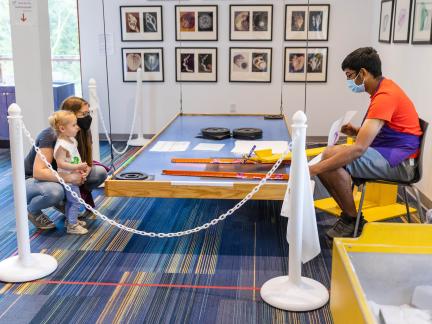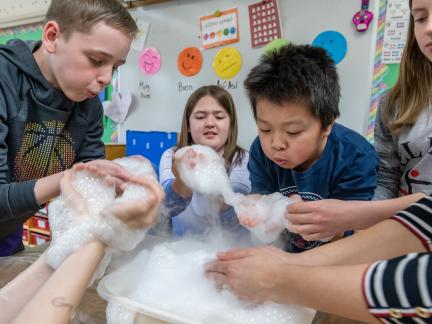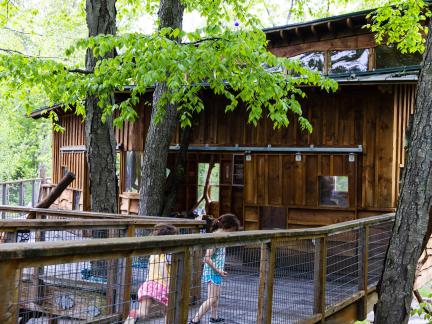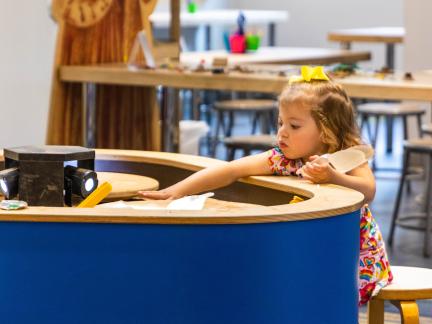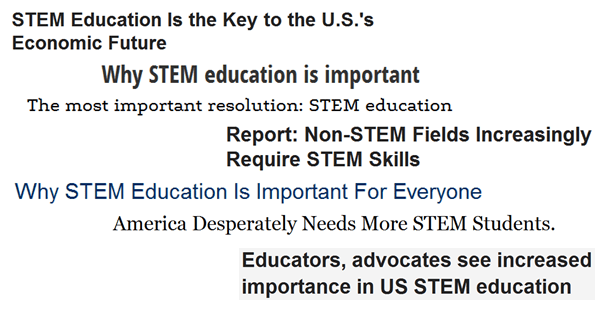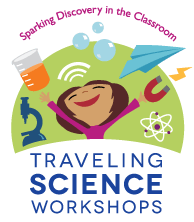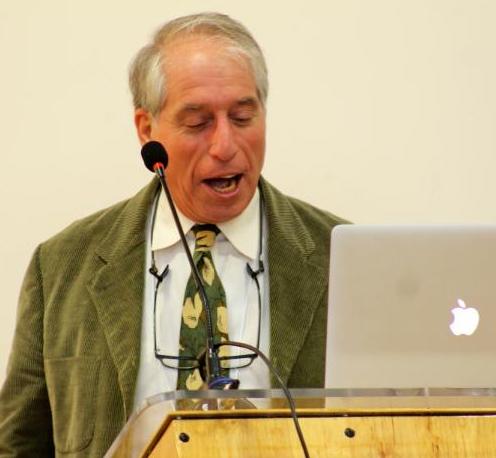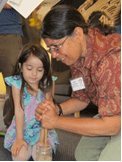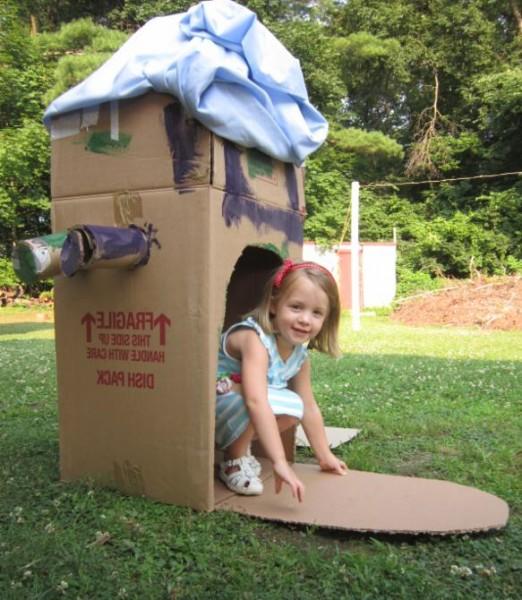Update from our CEO, October 2015
Dear Friend of the Museums,
It's hard to miss the headlines regarding the importance of STEM education these days. But at the same time that the public drumbeat for more STEM in schools has gotten louder, forces have conspired to decrease the amount of in-school STEM instruction being delivered to our best learners: young children. According to a 2012 paper prepared by Rolf K. Blank, Ph.D. for the Noyce Foundation entitled, "What is the Impact of Decline in Science Instructional Time in Elementary School?," science instructional time in elementary grades has dropped to its lowest levels since 1988. Blank reviewed national and state data, which showed that less time doing science, not surprisingly, correlated with lower test scores. Notwithstanding the limitations of standardized tests, this is concerning. Blank's paper notes that getting hooked on STEM happens in the early years---yet we are slowly eroding the chance to excite young minds around STEM.
Certainly there are many thoughtful people wrestling with the educational policy implications of this data. Debates will continue about the relative balance of literacy, math, and science instruction (as well as recess!), and we encourage all parents to be part of those discussions at their schools. Meanwhile, The Discovery Museums are taking a more direct approach: bringing hands-on science to elementary schools to in our communities. Our program is aptly called Traveling Science Workshops (TSW): we go to kids' classrooms and bring science to them, in direct, experiential, fun, hands-on ways.
TSW has been part of our work for more than 20 years. It is a remarkable program with teachers traveling throughout the state to do real science in the classroom with kids ranging from preschool through middle school. We just completed another very successful school year where we reached more than 29,000 students in 1,400 classrooms, in 93 cities and towns. TSW has grown steadily over the years, because teachers, parents, and students value the experience we offer. Here is an example of what teachers say:
"The hands-on experience was phenomenal. Students spent more time doing rather than watching. The TSW teacher encouraged students to think more deeply about what was happening, by asking questions: 'What else can you try? What's vibrating? What might happen next?' It was an excellent experience for me and for my students, thank you!" --2nd grade teacher
And a student:
"I always thought science was just experiments and work, but on Tuesday, when you showed my class all the cool things you can do with science, I was overwhelmed. I would like to say thank you so much for your wonderful visit." --8th grade student
The state has released a draft of new science education standards, slated within the current timeline to be adopted in January 2016. To support teachers' efforts to meet these new requirements, we have been re-structuring our offerings and developing new curriculum. In pilot for the 2015-16 school year are new workshops on Force & Magnetism, Force & Motion, Sound, Light Waves, Sound Waves, and Weather & Climate.
We are fortunate to have significant ongoing support for Traveling Science Workshops from MathWorks, Inc., a strong supporter of STEM education for kids. MathWorks recently renewed funding for TSW for the 6th year in a row! We greatly appreciate this support.
Additionally, there are organizations that support our work to bring TSW to underfunded communities that might otherwise be unable to afford this classroom enrichment, including Advanced Micro Devices, Avidia, Biogen Idec, Fred Harris Daniels Foundation, Genzyme, Stevens Foundation, Cubist Pharmaceuticals, and Greater Worcester Community Foundation. Thank you.
You can get a good feel for Traveling Science Workshops and why they are valued by teachers, students, and parents by watching this short video. If you'd like to bring TSW to your school, or help support us bringing it to communities in need, please contact School Programs Director, Jill Foster, at jfoster [at] discoverymuseums.org (jfoster[at]discoverymuseums[dot]org).
We tackled a different aspect of science education at our recent Discovery Museums Speaker Series event, "Global Change and the Challenges for Science Education." Dr. Joe Levine reviewed the evidence that human activity has become the most powerful driver of global change. He encouraged us to think about how these changes are affecting our lives already...and what they will mean for our children. As a leading science educator, Dr. Levine reviewed the challenges of teaching about global change. For our part, the museums are embarking on an ambitious effort to improve kids' connection with the environment around them, the first step to helping them better understand and appreciate the natural world. More on this topic very soon!
Our next speaker series event, the last of 2015, will be held on Wednesday, November 18, from 6:30 to 8:30 pm, at the Goodnow Library in Sudbury. Dr. Woodie Flowers, Emeritus Professor of Mechanical Engineering at MIT and National Advisor to the First Robotics Competition, will present "What is the Future of Education?: Education vs. Training." Join us!
We think letting kids experience science alongside real, working scientists is a powerful inspiration to engage science learning, and we invite scientists to share their work or research with our visitors on a regular basis. One of the ways we do this is with our Science Communication Fellows program. Fellows complete a training program with our staff to find the way to best explain their work to the public, developing engaging hands-on activities that bring it to life. Since 2013, thirty professionals and researchers have completed our Fellowship program. They include engineers, neuroscientists, chemists, archaeologists, mathematicians, physicians, and more, and represent more than 15 institutions and corporations, including Brandeis, Harvard, Tufts, UMass, MGH, MathWorks, Alkermes, and many more. Our most recent cohort will present their work to the public during our Meet the Scientists night on Friday, December 4th, from 6:00 to 8:00 pm.
This all may sound very serious, but I can guarantee you that fun is still the key word around The Discovery Museums. This summer, which saw visitorship grow, included a host of great programs created by our staff including Tot Rock, KEVA Tabletop Treehouses, Exploring Nano, Great Hill
Exporation, Dirtopia!, Great Woods Art Hike, FortNight, Fairyborough, and Backyard Builders. We were also happy to host great programs with outside partners, including Wild Animals in Your Neighborhood with Blue Hills Trailside Museum, Exploring ArtScience with Visiting Artist Kim Bernard, NXT Robots with Stormgears Middlesex County Robotics Club, The Caterpillar Lab with Sam Jaffe, and Engineering Extravaganza with the A-B Robotics Team. It was a fun and busy summer!
We celebrated back-to-school with our annual Pay-As-You-Will days, during which visitors were invited to donate to the museum in any amount or not at all, while enjoying free admission. We are always heartened by the great response to this week of community support.
As we enter the Fall, big things are happening at the museums. In a couple weeks I will be sending you more news about the exciting changes in our future. Until then, I welcome your thoughts and ideas at ngordon [at] discoverymuseums.org (ngordon[at]discoverymuseums[dot]org).
Best,
Neil H. Gordon
Chief Executive Officer
